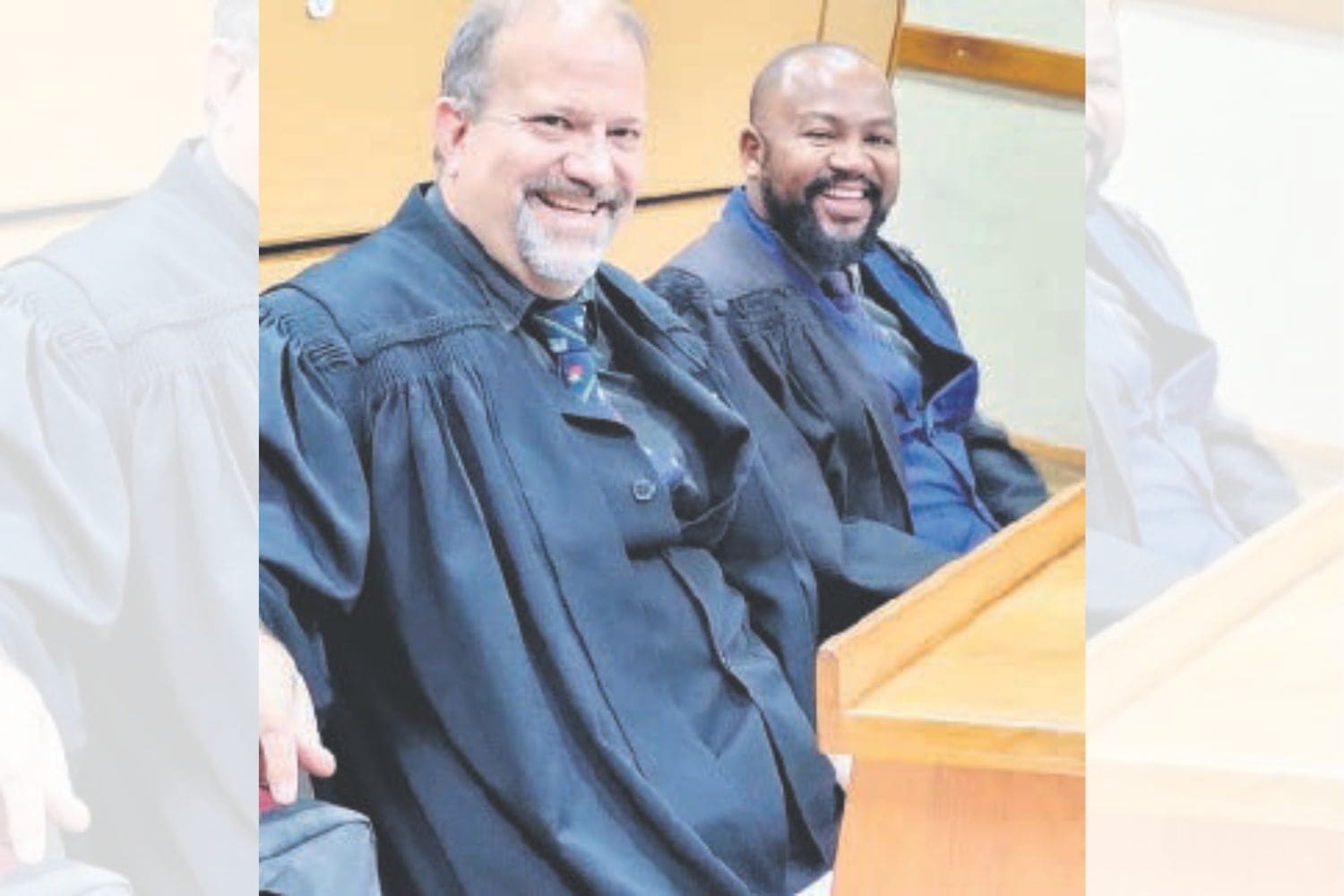Criminal defence attorney Mark Tomlinson balances toughness in court with compassion shaped by his own past struggles.

You’d never picture a lawyer as such a helluva nice guy. But that is only until criminal defence attorney Mark Tomlinson dons his toga. Then, he’s as tough as nails.
Tomlinson is representing two of the four men accused in the murder of Luke Edwards, a former resident at the Tetelestai Recovery Centre on the KwaZulu-Natal South Coast.
It is not his first murder case rodeo and while the case is still in its early stages, it has attracted widespread attention. This, particularly when it comes to allegations of conditions and treatment of inpatients at the centre.
This not criminal defence attorney’s first rodeo
He said he is avoiding speculation on broader narratives when working on a case, especially ones that have drawn media attention, like the Edwards matter.
“There’s the centre, there are the four accused and there’s the public chatter,” he said.
“But my job is to stay focused. If I let myself get swept into all of it, I won’t be doing what I need to for my clients.”
ALSO READ: When lawyers stop fighting for justice
After bail hearings were concluded last week, he is yet to receive the full docket from the state.
“There’s a lot I still don’t know,” he said. “My focus remains on my two clients, their version of events and the evidence around that.”
This includes the results of the state autopsy that will establish cause of death as well as provide other key indications and evidence.
Edwards murder case
The Edwards murder case and the greater milieu vis-à-vis the rehabilitation centre does resonate with him personally, though. He’s been through his own addiction hell.
“My own background includes substance abuse. I’ve been through this, too,” he said.
“I will never compromise on the law, but it does mean I understand the context better than most. I don’t judge.”
ALSO READ: Nedbank exposed for ethical failures in court
Being a criminal defence lawyer never wins anyone a popularity contest, he said. Many lawyers stay away from defence work because of the emotional and ethical demands.
“We’re often misunderstood and maligned, even by colleagues,” he said. “But for me, it’s a passion because I’ve developed a conviction for the rule of law and the constitution.”
Defending those accused of serious crimes is not about right or wrong, Tomlinson said, but about whether the state has fulfilled its burden of proof.
Not guilty doesn’t necessarily mean innocent
“Not guilty doesn’t necessarily mean innocent,” he said. “It means the state couldn’t prove its case beyond reasonable doubt.”
He became a lawyer largely because of his father, who served as a regional court magistrate.
It was not a calling at first, more a path that he found himself on. Over time, however, it became something more for him.
ALSO READ: Should you be mad at your lawyer for using AI?
“It did take quite a few years before I actually realised I was doing what I was meant to be,” he said. Criminal defence litigation, in particular, is where he really feels at home. “It has become a calling,” he said.
A tricky case can also become all consuming, Tomlinson said. He works under pressure and lives with the case even after the court adjourns for the day.
“My dad always used to say you need to switch off when you get home,” he said.
Emotional impact of work
“But during a trial, I don’t sleep much. It’s mentally consuming. I try to focus, try to be present, but my brain is working the entire time.”
The emotional impact of the work is most keenly felt in rape cases, he said, particularly those involving minors.
“Those are the ones that really test my convictions,” he said.
ALSO READ: Bogus lawyer ordered to pay back murder accused client’s R40k
There is an adage, he said, popularised by author David Melinkoff in his book The Conscience of a Lawyer. “Never ask your client if he is guilty.” It’s a tough job to sit opposite a client who’s facing allegations of socially unacceptable crimes.
“Everyone deserves a defence, no matter who you are or what it’s purported that you have done,” he said. “The law is there to serve and uphold everyone’s rights.”
When he’s not trying cases for clients, Tomlinson helps people who cannot afford a pricey defence themselves. He serves on the Judicare panel, a method of legal aid through the bar.
Serving on Judicare panel
“There are many attorneys who do important work in this space, defending people who wouldn’t be able to afford it,” he said.
“It’s not glamorous, but it’s necessary,” he said. The South African justice system is not perfect, but it remains the best option available.
“You get hard-working policemen, diligent prosecutors, good magistrates. And yes, you get bad apples, too.”
ALSO READ: Kim Kardashian graduates from law school after six years
Allegations of corruption, especially at senior levels, concern him. “If there’s wrongdoing, it must be investigated and dealt with. But we mustn’t allow a few to taint the whole system.”
Time away from work, and its solitude and a book he craves.
“Give me a couch and a book and I’m happy.”
Tomlinson enjoys non-fiction, particularly history and military history.
Support Local Journalism
Add The Citizen as a Preferred Source on Google and follow us on Google News to see more of our trusted reporting in Google News and Top Stories.






